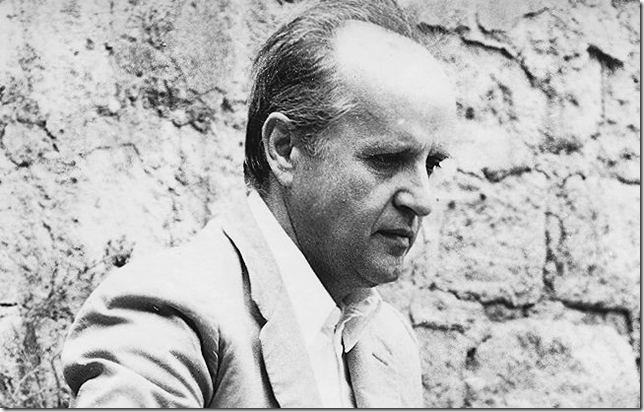For all the different varieties of chamber music there can be, strings tend to be heard more often in quartets and winds in quintets.
The 22nd edition of the Palm Beach Chamber Music Festival has no string quartets on its programs this summer, but it came close Sunday at Delray Beach’s Crest Theatre, closing with a string quintet, and opening with two wind quintet miniatures.
The first of those brief pieces, a Scherzo by the French composer Eugène Bozza, is built around a little minor-key motif that provides the framework for a blizzard of scales in flute, oboe, clarinet and bassoon, and the effect is delicately dark and charming. The five musicians — flutist Karen Dixon, oboist Erika Yamada, clarinetist Michael Forte, hornist Maria Serkin and bassoonist Michael Ellert — played it expertly, and with a light touch.
They followed that with a substitution, Italian composer Nino Rota’s Piccola Offerta Musicale, written in 1943 in honor of his teacher Alfredo Casella; the Rota took the place of a piece by American composer Clifford Shipp that had been planned. Like the Bozza, Rota’s piece is straightforward and compact, though with a much stronger melodic profile. Yamada had the starring role here in the first section, and her large, plush sound carried it beautifully.
The bubbly second section showcased the players’ technical dexterity (though it could have been a touch faster), with its jumping, leaping theme, and with Serkin providing a well-played counterbalancing part. It’s a lovely, exquisitely crafted miniature by a composer who should be better-known for things other than The Godfather.
Trumpeter Marc Reese joined the five players next for an arrangement of the aria Una voce poco fa, from Rossini’s Barber of Seville, fashioned by the contemporary French trumpeter Thierry Caens from an original by the otherwise obscure Pierre Renard. Reese’s warm, almost cornet-like sound was a pleasure to hear, and the quintet backed him with a requisite restraint that nevertheless left room for the energetic spirit of the buffa.
The first half closed with a fine performance of the Clarinet Trio (in G minor) of the Soviet Armenian composer Aram Khachaturian. Forte and violinist Mei Mei Luo were joined by pianist Lisa Leonard for this work from 1932 that is full of the Armenian and Central Asian folk color (and actual melodies) that was a central part of Khachaturian’s compositional project.
Forte played ably throughout, with a pure, sweet but relatively thin sound and a somewhat distant feeling of engagement. Leonard was her usual powerful, forceful self, and for Luo, it was music that clearly spoke to her instincts: Her playing was vivid, improvisatory and richly realized, which made the trio a partnership of equals rather than a work for clarinet with two bystanders.
The second half of the concert was devoted to the String Quartet No. 2 (in G, Op. 77) of Antonin Dvořák, which despite its high opus number is a relatively early work. Written for the standard string quartet with the unusual addition of a double bass, it is redolent of the things for which this composer is revered: Wonderfully idiomatic writing for the strings, an abundance of beautiful melody, and an open, direct, healthy emotional landscape.
Oral notes for the quintet were given by bassist Jason Lindsay, who talked about the “magic” of the music, which it certainly has, in a fervent way that sounded as though he was about to introduce Raffi at a children’s event at a bookstore on Saturday morning. He is an excellent bassist, though, and his resonant playing blended ideally with his colleagues — violinists Dina Kostic and Monica Cheveresan, violinist Rene Reder and cellist Susan Moyer Bergeron.
Overall, the performance had all the basic things right from the standpoint of presenting Dvořák and his idiom faithfully. As happens often in this festival series, it fell somewhat short in subtlety of detail, and in some cases intonation in the full ensemble was not quite precise. It’s the sort of thing that more rehearsal would have cleared up.
That said, there was a great deal to enjoy here, such as Bergeron’s compelling solo passages in the first movement, which made one think of how she would sound in Dvořák’s great Cello Concerto. The gorgeous third movement, one of Dvořák’s most radiant, came across with a lovingly controlled sense of serenity that let the music unfold like flowers slowly opening.
And although the finale could have used better tuning (all those octaves) from time to time, the five musicians imbued the movement with vigor and optimism, ending the concert with one of the most satisfying pieces of music on the festival thus far.
Week 4 of the Palm Beach Chamber Music Festival’s summer series is set for 7 p.m. Friday at Persson Hall at Palm Beach Atlantic University, 8 p.m. Saturday at the Eissey Campus Theatre in Palm Beach Gardens, and 2 p.m. Sunday at the Crest Theatre in Delray Beach. The program contains the Duo No. 1 (in G, K. 423) for violin and viola of Mozart, Stravinsky’s Pastorale, and the Quintet in the Form of a Chôros, by Heitor Villa-Lobos. The concert ends with the Piano Quintet (in C minor, Op. 1) of Ernst von Dohnányi. Tickets are $25. Call 800-330-6874 or visit www.pbcmf.org.
